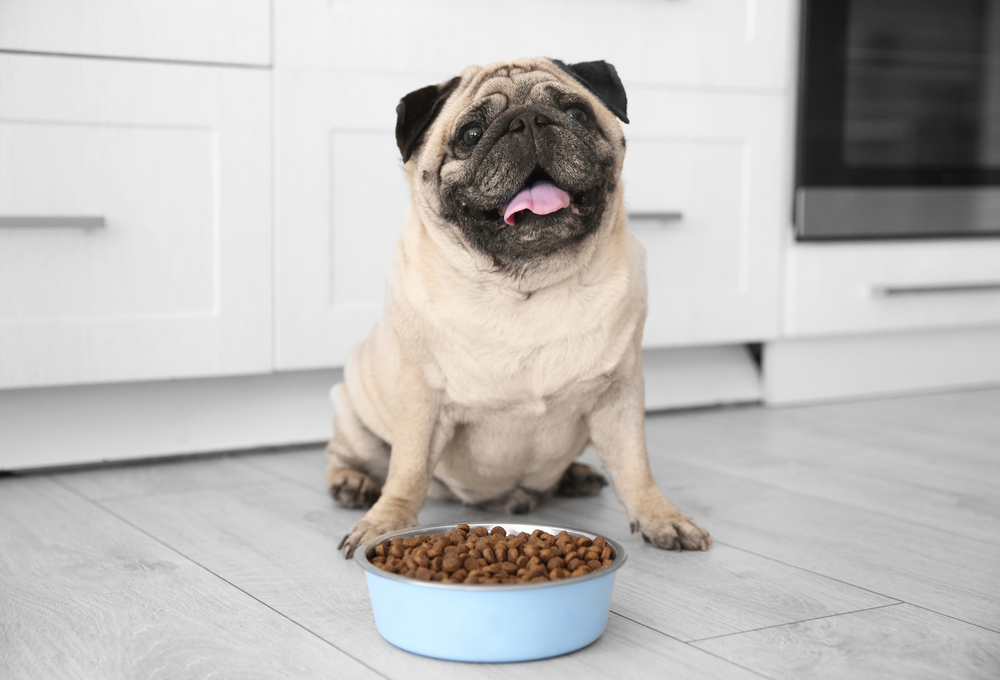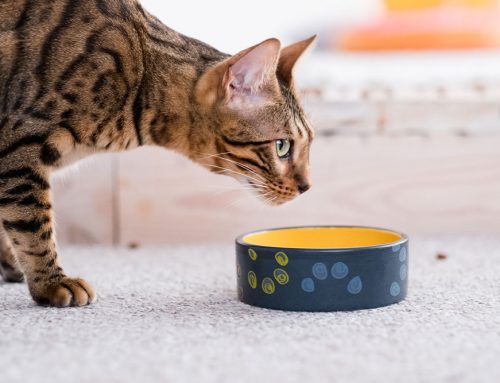Pet obesity is a growing epidemic in the United States, and many pets suffer from lugging around extra pounds. As with people, excess weight can create a multitude of health issues for your pet and shorten their life. Let our team at Chatham Animal Clinic help you brush up on the facts about obesity in pets and learn how to keep your furry pal happy and healthy at their ideal weight.
#1: More than half of the U.S. pet population is overweight or obese
According to the Association for Pet Obesity Prevention, an estimated 60% of cats and 56% of dogs in the United States are considered overweight or obese. This equates to a staggering 50 million dogs and 56 million cats.
#2: Obesity can increase your pet’s risk for numerous other diseases
Those extra pounds your pet is carrying can be dangerous, since they can increase the risk of disease development. Pets who are overweight or obese are more prone to developing or suffering from the following conditions:
- Osteoarthritis
- Heatstroke
- Diabetes
- Hypothyroidism
- Cushing’s disease
- Urinary issues
- Cardiac disease
- Respiratory problems
- Liver issues
- High blood pressure
- Skin irritation
- Some cancers
Not only are overweight pets at higher risk for developing certain illnesses, but excess weight also can exacerbate their current health conditions.
#3: Many pet owners do not realize what their pet should look like
When asked if their pet is overweight, many pet owners are unsure how to respond. In fact, many pet owners do not realize what their pet’s ideal body should look like. While knowing how much your pet weighs—and what they should weigh—is helpful, a better indicator of a healthy pet is their body condition score. By evaluating your dog’s or cat’s body condition, you can determine if they are too heavy or too thin. Overweight pets will lose their waistline, and it will be difficult to feel their ribs.
#4: Calculating your pet’s caloric requirement is essential for reaching a healthy weight
Not all foods are created equal when it comes to calories, especially if you’re supplementing your pet’s balanced diet with morsels from your own plate. Treats should account for no more than 10% of your pet’s total daily calories; the rest should come from a balanced diet. To determine how many calories your pet needs each day, use a cat or dog calorie calculator. The calculator will give you the recommended number of daily calories for your pet, and you can then calculate how many cups of food your pet needs. Split the total food amount into two or three meals, then choose low-calorie treat options to round out your pet’s daily caloric intake.
#5: Low-impact exercise is best for overweight or obese pets
Pets who are overweight or obese are already suffering from extra joint stress, so choose a low-impact exercise to help your furry pal shed those excess pounds. Try a gentle walking routine, take your dog swimming, or tone down your cat’s feather wand attacks to encourage exercise that is not too strenuous.
#6: Metabolic diseases can interfere with your pet’s weight loss
Overweight pets who have developed a metabolic disorder can struggle to lose weight. Endocrine diseases, such as hypothyroidism, can slow your pet’s metabolism and make diet and exercise insufficient for weight loss. If your pet is struggling to lose weight through diet and exercise alone, schedule a complete diagnostic evaluation to see if a metabolic condition is complicating weight loss.
#7: Prescription diets can help your pet feel full and lose weight safely

While reduced-calorie diets are available in pet stores and online, prescription diets are even more effective at helping your pet lose weight. Prescription diets are designed to help your pet feel satiated, reducing the urge to eat constantly, plus they can help manage other conditions, like osteoarthritis. When putting your pet on a weight-loss regimen, stop by Chatham Animal Clinic for a monthly weigh-in to ensure they’re on track. Dogs should lose 1% to 2% of their total body weight per week, while cats should lose between 0.5% and 2%.
If your four-legged friend is more fat than fluff, contact our Chatham Animal Clinic team to schedule an appointment. We’ll rule out metabolic disorders that could make it difficult for your pet to lose weight, and create a personalized diet and exercise plan to help them find their waistline.







Leave A Comment